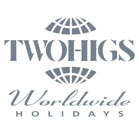
Last Thursday it seemed everyone near a trading screen in London or Dublin stopped what they were doing and waited for the latest libor (London interbank offered rate) statistics to issue from the British banking authorities.
The figures were supposed to ease down following an internationally co-ordinated interest-rate cut and the part nationalisation of several banks in the UK. It never came. Instead the cost of borrowing dollars over three months surged to the highest level this year. Instead of a revival it was back to pure survival for western markets.
But not everyone would have been disappointed about the failure of libor rates to settle down. Ireland's cash-rich companies – yes, there are some – would have been cheered by the development as it helps them to extract even more return from their cash reserves, held in a range of banks here, the US and in Europe.
For example, Anglo Irish is very much up front about what it can offer corporate depositors – "highly competitive, libor-based deposit rates for all time periods", its US site was telling potential clients last week. Grabbing corporate depositors is highly important for Ireland's four listed banks, but also for the national economy, according to the Central Bank and the Financial Regulator.
Everyone is aware of the liquidity problems which afflicted Irish banks two weeks ago. Less remarked upon is the disastrous run on Irish banks triggered by corporate depositors, many of them in the US, who took their money out of Ireland in a hurry that particular week.
The introduction of the guarantee scheme subsequently brought about €10bn back into the country, but the constant ebb and flow of hard cash has only whetted the appetites of Irish banks to pull in additional corporate deposits.
Unfortunately Ireland is probably not a great place to start looking. The balance sheet of Ireland Incorporated is not a pretty sight at present. There is lots of leverage, lots of declining sales figures, but not much surplus cash. In fact the search for cash among listed Irish companies is almost counter intuitive.
Don't start with the biggest companies by market value; skip those and start somewhere more towards the middle-upper section of the value league table, where Ryanair can be found. With €2.2bn in cash there is no company quoted on the Irish stock exchange that can compete with Michael O'Leary's gargantuan cash pile. Even CRH, Ireland's crown jewel, can only boast just over €1bn in cash in comparison, even though it is double the size of the Dublin-based carrier.
It must be something about airlines. O'Leary's chief rival Aer Lingus is also sitting on a lot of spare cash – €802m according to its last set of results.
However, the heft of the Aer Lingus cash pile is somewhat illusory. Lots of this money is simply waiting on deposit before being paid over to Airbus for new aircraft. Another portion of it will drain away as the airline books huge losses in 2008 and 2009.
Still, the case of Aer Lingus is instructive. In its results for 2007 it said it was earning an interest rate on "current deposits" of 4.6%, up from the previous year. There is no way to know what the current rate is, but the airline pointed out last year that every 1% drop in eurozone interest rates eats up about €9m of profits.
This week's cut in interest rates may hurt the airline. In fact getting the right deal can be tricky. Some of the banks offer 10-year fixed interest deposit rates for corporates, but locking in for such a long period could expose any company to unnecessary underperformance.
Other notable hoarders of cash are Kerry (€186m) and the Musgrave Group (€145m). Other firms may have more stellar earnings profiles, may have better assets and possibly stronger credit lines, but sitting on a large mound of cash in the worst downturn since 1983 has got to give these firms confidence, even if the amounts pale into insignificance when placed alongside Ryanair's giant riches.
DCC is another company sitting on a lot of cash, post the departure of Jim Flavin. That is why the break-up of that company is so widely anticipated. According to Merrion Stockbrokers, DCC, now managed by Tommy Breen, could have an accumulated cash cushion of €485m by the end of this year. This was not far off half of its market value last week on the Dublin stock exchange.
For a company of its size, NTR is another firm well able to flash the bling during a recession. Even after staging a share buyback programme and snapping up a range of energy-related assets in recent months, the company told the Sunday Tribune last week it was still sitting on cash reserves of approximately €200m. This compared with total sales in its most recent accounts of just €441m. That kind of cash buffer comes in awfully handy in a severe downturn.
Private companies don't have a monopoly over spare cash though. A company which is positively overflowing with excess liquidity is Bord Gais, managed by John Mullins.
Its last set of accounts might even make Michael O'Leary, the cash king, blush. It had €418m in cash in bank and cash in hand in 2007. While some of this was tied up as security for interconnector pipeline projects, it gives the company great leeway to ease itself through the recession.




 del.icio.us
del.icio.us digg
digg Facebook
Facebook







